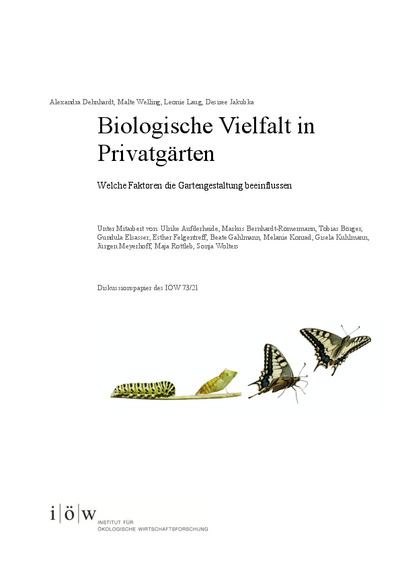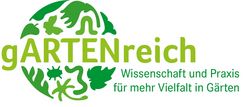gARTENreich Preferences and constraints for biodiversity conservation in home garden, project phase 2
Home gardens have a great potential to protect and promote biodiversity. Around 17 million home gardens occupy just under two percent of Germany's total area. However, biodiversity in home gardens is dwindling due to a steady decline in structural diversity and increase in sealing. Reasons for this include a lack of knowledge and expertise about appropriate garden care and design, aesthetic preferences, social pressure such as to "clean up" the garden, or a lack of interest among garden owners. People are also looking for low-maintenance solutions – on the one hand due to age-related limitations in managing their own garden, and on the other hand because they have little time for their garden. Due to their high potential for promoting biodiversity, home gardens are increasingly attracting the attention of stakeholders in policy and governance.
Building on the results of the first phase, namely a comprehensive review of the state of knowledge and research gaps, exploratory interviews with experts and a workshop with garden owners, the project gARTENreich investigates in the second phase in an inter- and transdisciplinary research design the contribution that home gardens (can) have to protect and promote biodiversity. With the help of different indices, structural and species diversity in home gardens will be determined, and it will be analyzed how these can be transferred to other spatial scales. In 'real-world labs' in the partner municipalities of Gütersloh and Aumühle, a series of workshops will be held with garden owners to discuss the factors that influence garden design and promote biodiversity. Together, 'biodiversity modules' are developed: small components with which gardeners can promote biodiversity in their home gardens that can be implemented under different framework conditions and. In addition, online communities and a nationwide survey among garden owners will be used to analyze which social, economic or design factors promote or inhibit more diversity in home gardens. Based on this, strategies for more diversity in home gardens as well as information and tools for communication will be developed and made available to municipalities.
To the Website of the project (only in german)





